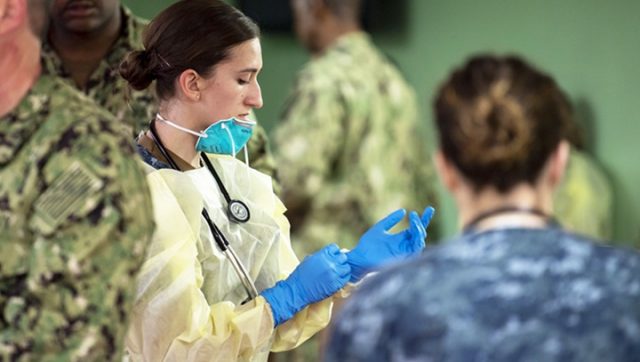
COLUMBUS, OH – The Ohio Department of Health (ODH) has reported the state’s first probable human case of influenza A(H5), commonly known as Highly Pathogenic Avian Influenza (HPAI) or bird flu. The affected individual, an adult male farm worker in Mercer County, contracted the virus after contact with deceased commercial poultry.
Despite the case, the Centers for Disease Control and Prevention (CDC) continues to assess the risk to the general public as low. However, individuals who have prolonged, unprotected exposure to infected birds are at greater risk.
Public Health Guidance
Health officials urge Ohioans to avoid direct contact with wild birds, sick or dead poultry, or contaminated environments. Those who work with poultry should take additional precautions, including proper hygiene, protective gear, and biosecurity measures to prevent further spread.
Guidelines for Poultry Workers and Farmers
The Ohio Department of Agriculture (ODA) emphasizes the importance of strict biosecurity measures for commercial poultry owners, including:
- Limiting contact between poultry and wild birds.
- Reducing farm visitors and ensuring biosecurity compliance.
- Proper sanitation, including handwashing and disinfectant footbaths.
- Monitoring poultry health for signs of infection, such as respiratory distress or decreased egg production.
Farmers should report unusual signs of disease or unexpected poultry deaths to the Ohio Poultry Association (614-882-6111) or the ODA (614-728-6220).
Bird Flu Cases in Humans and Food Safety
Since early 2024, 68 confirmed human cases of HPAI have been reported in 11 states, including one fatality in Louisiana. Most cases involved agricultural workers or individuals exposed to infected poultry. There have been no known cases of human-to-human transmission.
The ODH reassures the public that poultry and dairy products remain safe to consume as long as they are properly cooked and pasteurized. Poultry, eggs, and beef should always be cooked to the CDC-recommended internal temperatures to eliminate bacteria and viruses.
What to Do If You Are Exposed
Anyone who has had direct contact with sick or dead birds should monitor for respiratory symptoms and seek medical attention if symptoms develop. Sick or dead wild birds can be reported to the Ohio Department of Natural Resources at 1-800-WILDLIFE, while poultry-related cases should be reported to the ODA at 614-728-6220.
For more information, visit the ODH and ODA websites.










